Tips to Prolong The Life of Your Automatic Door
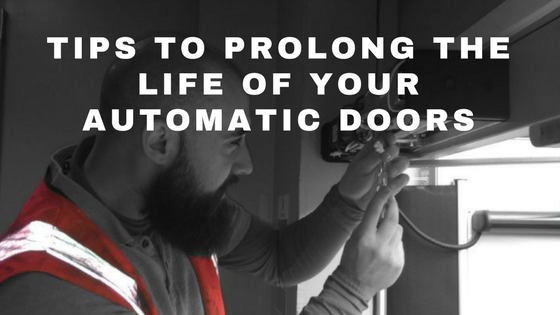
In this blog I have decided to have a closer look at Automatic Doors and most importantly provide some “Tips to Prolong The Life of Your Automatic Door”.
What is an Automatic Door and How Does It Work?
An automatic door is a door that opens automatically, the type of door installed and just what you want to achieve will have an impact on how this happens.
Full Table of Content
Types of Automatic Doors
A swing automatic door operator is a mechanism which is usually electro mechanical and operates the door for pedestrian use. It opens the door automatically, holds open and then closes the door.
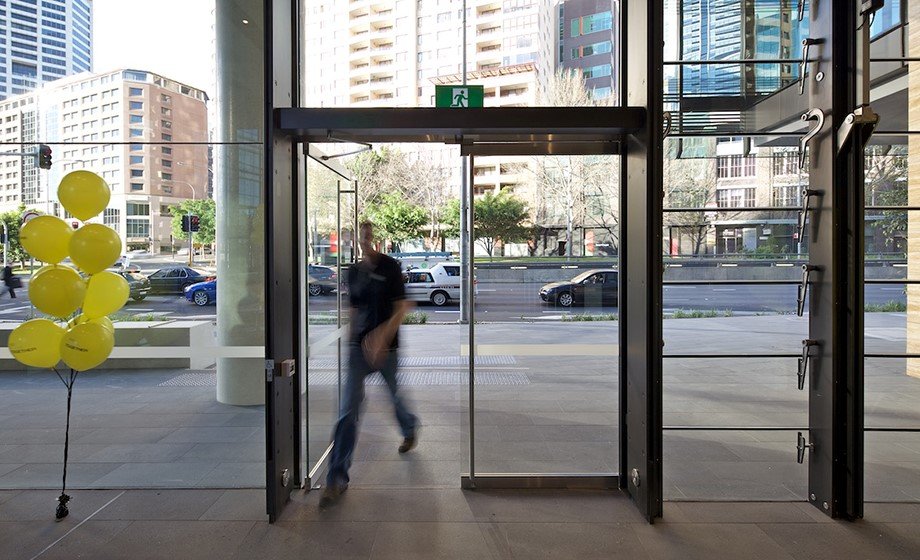
Another option is a sliding door which is operated by a different type of operator that pulls the door leaf to the side. This option is space permitting but it still a common solution especially for shopping centres, hotels, doctors surgeries.
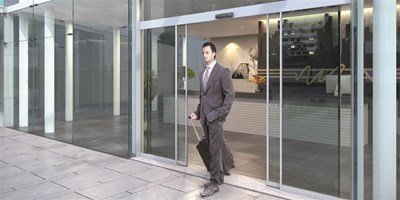
Both of these tend to work by sensing the approach of a person. When you walk towards the door the optic or motion sensors sense motion nearby, they trigger the automatic doors to open and then close behind you. Most modern automatic doors if they come into contact with something they shouldn’t be when closing will open again meaning they are safe and no one will get stuck. However most automatic doors have sensors installed on them to prevent the door from ever coming into contact with pedestrians using the door. The simplest sensor is a light beam across the opening which is known as a Photo Cell. Should there be an obstacle in the path of the closing door then it breaks the beam, indicating its presence and the door opens. However, the modern day automatic doors use Infra-red passive and active and radar sensors in most cases. The most important thing is that they are going to be safe and that must comply with the BS EN 16005 Safety Standard. I will be writing a blog in the coming weeks about this standard and why it’s important.
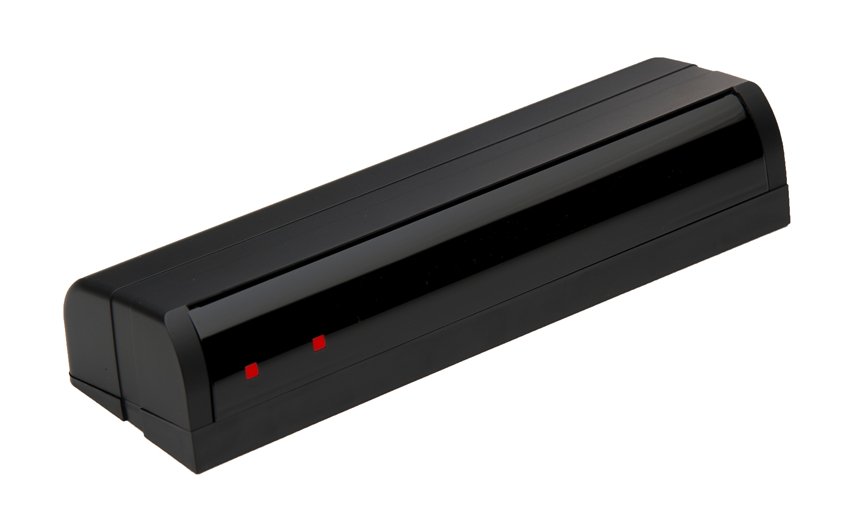
There are many different options and other ways in which an automatic door can be used. There can be a push button fitted which opens the door when the user presses a button. This is a common solution where disabled access may be needed and therefore the button can be pressed as and when the automatic door is required to be in use.
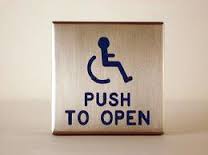
Access Control is also another extremely popular option that can support an automatic door working. In this instance, the door opens when the user activates a code reader or swipe reader with a fob or remote-control button. Providing the user has authorised access to the area (it won’t work if they don’t) the doors will automatically open. We have a blog on access control that you can have a read of on our website.
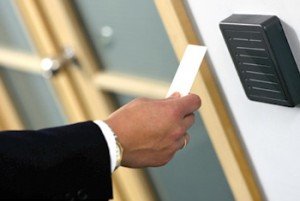
Where are Automatic Doors Used?
Automatic Doors are most often used in commercial environments but can be used anywhere that they would be of use. Most commonly they are found on the high street, in office blocks, schools, universities, doctors surgeries, pharmacies and many more places.
Looking After Your Automatic Door
It’s easy to forget about your Automatic Doors and take them for granted. They very kindly open the door for you every time and close it behind you as you walk in and out. Simple! However, in reality there a number of things to consider especially if you wish to get the maximum lifespan out of them. In lots of cases if looked after properly they can be fully functional and operational for 20 years!
Firstly, and one of the most important factors to consider is if the doors are safe. For example, are the safety sensors working as they should and are the door forces and speeds correct. One way to ensure this is to have a professional maintenance contact in place with a reputable Automatic Door company. I will go over that in more detail later.
A professional maintenance schedule is one of the recommendations of BS EN S16005; although some faults, accidents or mishaps cannot be foreseen it really pays to take some time to self-maintain your doors, as this can help to avoid the more common problems.
Tips to Prolong The Life of Your Automatic Doors
The biggest tip that I can give you is to make sure that you commit to carrying out a detailed inspection of your automatic door every month or so. Occupier safety checks really help and will allow you to spot any issues early on that something is about to go wrong. It will also allow you to ensure that your warning or advisory signs are visible and compliant with BS EN 16005 regulations.
- Check for objects or debris that may be causing any kind of obstruction that you could clear away which may lead to larger problems or issues that could be avoided and may be costly.
- Have a listen! When passing the doors, pause and listen to see if they sound different. You pass the doors every day and will be familiar with how they sound. Any changes will be noticeable and again can help you identify issues early on.
- Run tests to confirm the efficiently of the approach sensors just to make sure that the doors open and close as they should. For example, during a fire drill would be an ideal time as then you can monitor how the doors react to the increased volume of people all charging to get through them.
- Where appropriate, lubricants can be applied to aid smooth operation. It also helps if you oil all door locks again this can keep them healthy.
None of this is taxing or complicated but you would be completely surprised at how much of a difference it will make to the lifespan and general day to day performance of your doors.
As I previously mentioned having a professional servicing and maintenance contract in place with a reputable Automatic Door company really is essential as the checks need to be carried out by a trained and authorised technician who holds BS7036 OR BS EN16005.
As a business, we work closely with The ADIA and CSCS to ensure that our engineers work to these guidelines. More information o what this involves can be found on their websites;
More information on the maintenance contacts that we provide can be found on the Automatic Door Maintenance Contract section of our website. However, you are welcome to call us at head office, 01355 202 201, to find out more!


